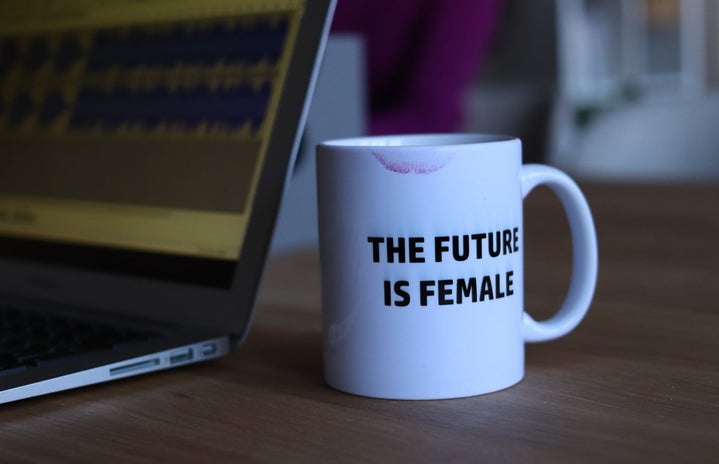Empowering female representation in urban music is becoming more common every day, especially in the Latin music industry. Artists like Natti Natasha, Becky G, and Karol G (no, they’re not related, it’s just a strange coincidence) are killing it on popular streaming platforms like Spotify, on radio stations in North America and Latin America, and on Youtube. It’s refreshing to actually have female artists expressing their sexuality and talking about womanhood in trap music, hip-hop, rap, and Latin urban music, but we have to give credit where credit is due. Ivy Queen was the trailblazer who had the guts to rap about being a woman in a predominantly male industry. Let’s talk a bit about her contributions.
Ivy originally collaborated with a rap group called ‘’The Noise’’. The topics that she covered in her raps were noticeably different from those that her colleagues rapped about. She realized that most of the other rappers who were making Reggaetón about sexual violence and objectifying women. Feeling tired of this, as a woman and as an artist, she wanted to make a change and pave a way for different kinds of lyrics (you know, ones that could empower women). She was convinced by one of her colleagues to release music as a solo artist, and since then, she’s donned the title of La Reina del Reggaetón and has made waves internationally.
She was one of the first women to actually release music as the lead artist in a song and spit full-on bars.I’m not diminishing the success of other women in the genre, such as Jenny La Sexy Voz and Glory. Both women are featured on some of the most memorable and iconic Reggaeton songs from the last decade like ”Rakata” by Wisin & Yandel, ”Gasolina” by Daddy Yankee, ”Paleta” by Wisin & Yandel (Daddy Yankee is credited as a featured artist but Jenny wasn’t), and many, many more. Even then, these women weren’t even properly credited for their contributions, didn’t always receive proper remuneration, and they weren’t able to capitalize on their songs’ success in the same way their male counterparts did.
Ivy Queen released music on her own in a time when it wasn’t culturally acceptable for women to rap the same way a man would. She literally invaded the genre—and she had arguably better lyrics than her colleagues! Her song ”Yo Quiero Bailar” is still considered a feminist anthem for making the distinction between dancing with someone and consenting to sex. Yes, Ivy was rapping about subjects we still face on a daily basis, and she did it while making us perrear at the club.
But there are more reasons why Ivy is a feminist icon. For instance, she encourages and supports other women in the Urban genre. She recognizes and states the importance of having creative control over your own music and even goes as far as reinforcing the notion of women having to support other women over the spans of generations in an effort to create a society that values and respects women as equals in all senses. This theme has been explored by other artists in recent times, such as Beyoncé in her visual film that accompanied her album ‘’Lemonade’’, but Ivy Queen has made these kinds of remarks ever since the beginning of her career. One of Ivy’s most recent songs, ‘’Malvada’’, talks about how she doesn’t care about how others perceive her and states that if she’s ‘’evil’’ for being empowered and acting how she pleases, then so be it.
Even her peers recognize the importance of her efforts. Quoting Glory after being asked if she had a rivalry with Ivy Queen during an interview for In The House magazine on 2007:” I laugh when they make us [Ivy Queen and herself] compete. She’s done a great job putting Puerto Rico’s name, and women’s in general, out there. This has opened doors not just for me, but also for [Daddy] Yankee, Don Omar, and other males in the genre. Unfortunately, we’re not friends. I would like to collaborate with her, it would be very successful because we represent two different types of women. We often get compared because of the stereotype that we, as women, like to gossip, envy each other, but on the contrary, there are men who are like that too.”
Ivy reaffirmed this ideology surrounding her persona and her music recently at the Premios Tu Música Urbano. She received an award for her career and her contributions to Urban music. During her acceptance speech, she expressed how grateful she felt to see more women performing Urban music, being celebrated for it, and how she wants women to lift each other up instead of competing with one another. She made shout outs to other female artists, such as Natti Natasha and Becky G.
As if this wasn’t enough, Ivy encourages feminist ideals by promoting the diversity of women and breaking the patriarchal notions of gender like women having effeminate voices, dressing exclusively effeminately, only performing ballads or pop music, and not being in control of their sexuality. While she didn’t put down women who did or enjoyed expressing themselves this way, she did not compromise her artistic vision to pander to a patriarchal society either.
Ivy arrived on the Red Carpet of the previously mentioned event with an all-female percussion ensemble and an entourage of Puerto Rican drag queens dressed in looks that honored Queen’s career. The mere act of bringing drag queens to the Red Carpet of an event whose majority of viewers probably doesn’t even conceive drag as a valid art form really takes a lot of guts. Her gender expression, musical style, and fashion all reveal the same: she doesn’t care about being traditionally feminine, delicate, or even easy to bear. She empowers herself in every aspect and embraces her many nicknames (La Diva, which was given to her by LGBTQ fans; La Reina del Reggaetón, La Caballota, La Perra, La Potra) with pride. And let’s not forget to mention that she refers to her body as ‘’cuerpa’’ instead of cuerpo, a notion adopted by other feminists and groups of feminist ideology to question the prevalence of the masculine gender in the Spanish language. Even though it might seem small (and even invalid to many, which is a topic for a completely different time), she’s literally putting feminist theory in practice in her daily life. Her figure is an affront to a male-dominated genre of music, and she deserves all of her success一if not more!
We should embrace Ivy just as much as we embrace other female artists in the Urban genre nowadays. She’s an icon, and if we have someone to thank for all of these bops in the first place, it’s her. So, I encourage you to buy her latest EP, Llegó La Queen (or stream it on Spotify) and bop to it with your girlfriends at the club. Overall, Ivy Queen teaches us one essential lesson about feminism: it can be done from any place regardless of your background and surroundings. One must be careful, but at the same time, trailblazers like her are necessary for equality to be achieved. Go get ‘em.


